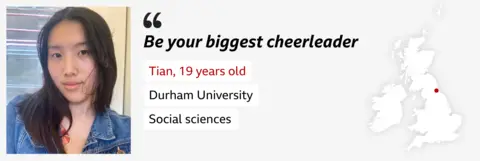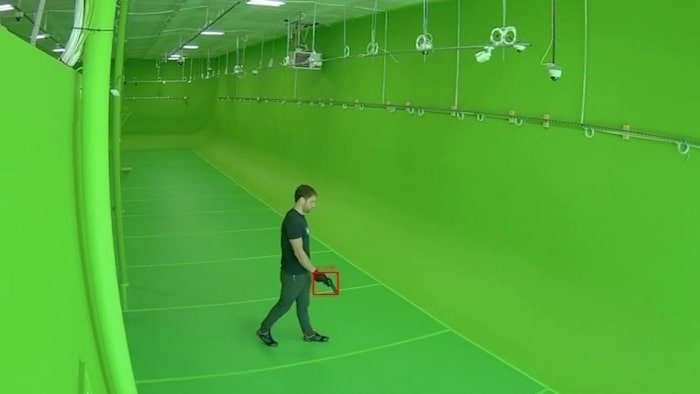Education
Mother of Brianna Ghey joins Kate Winslet in call for smartphone ban in schools | Education

Esther Ghey, the mother of the murdered teenager Brianna Ghey, and the Oscar-winning actor Kate Winslet are calling on Keir Starmer to legally ban smartphones in schools, warning current guidance against allowing phones has created a “postcode lottery”.
As children in England and Wales return to classes this week, Ghey said research showed that only 11% of secondary schools were currently implement a full ban on bringing in smartphones or requiring them to be left in a secure and inaccessible place all day.
She said a ban would have “solved so many issues” for her daughter, who was “sucked away from society and into the online world where she was at risk of so many harms”.
Brianna, 16, a transgender girl from Warrington, was described as addicted to her phone. She was killed by two teenagers in February 2023, one of whom she believed to be her friend.
The government has resisted banning smartphones in schools, insisting headteachers are able to take their own actions. It issued guidance in 2024 that “schools should develop a mobile phone policy that prohibits the use of mobile phones … throughout the school day, including during lessons, the time between lessons, break times and lunchtime”.
But subsequent research among 2,467 secondary schools in April by the children’s commissioner, Rachel de Souza, found that while 90% had some restrictions on phone use, only 3.5% banned phones from school grounds and only 7.9% required pupils to hand in their phones for the whole day.
This summer, Peter Kyle, the technology secretary, said schools needed freedom to implement guidance in the way that worked for them, but added: “If schools need more help to [take action] then we will look very carefully at that because we want to make sure that classrooms are free of smartphones.”
The new Smartphone Free Childhood campaign is calling for ministers to introduce a full legal ban including funding for schools to pay for a lockable pouch or similar alternative.
Other backers include the actor Stephen Graham, who appeared in the Netflix drama Adolescence, which dealt with online radicalisation of children, the boxer-turned-mental health campaigner Frank Bruno, the singer Will Young, the website Mumsnet and Jonathan Haidt, the author of The Anxious Generation, who says smartphones have caused an epidemic of child mental illness.
In an open letter to Starmer and the education secretary, Bridget Phillipson, they said: “Most schools are relying on children to resist a temptation even adults struggle with. It’s not fair, and it’s not working.”
Calling for a statutory ban, they said: “We know it can work – schools that can afford this approach are reporting improvements in both staff and student wellbeing.”
Winslet, who won a Bafta for her role in the Channel 4 drama I Am Ruth, where she plays a mother struggling with a daughter consumed by social media, said: “Every child deserves to be in classrooms that are free from the distraction and highly addictive nature of smartphones. A statutory ban would be a vital step towards protecting the mental health of young people and preserving every child’s right to realising their fullest potential during these precious and integral years.”
Ghey said she wanted children to be free to interact face-to-face throughout the school day, “building relationships with peers” instead of being subject to content arriving in the classroom and playground through phones, which she said could include child sexual abuse images, pornography and illegal drug markets.
Last year, Brianna’s secondary school in Warrington, Birchwood community high school, introduced a pouch system, requiring pupils to lock away their phones. Ghey said the teachers had noticed how noisy the dinner hall became as children socialised face-to-face, “laughing, joking, probably some of them were arguing, but this is all part of growing up and figuring out how to live in society”.
Brianna’s phone use at school led to her being excluded.
“There were 120 safeguarding issues around Brianna’s phone use, which ranged from child sexual exploitation to the issues around her eating disorder and self harming,” she said. “There were also 116 behaviour incidents logged, which [included] Brianna going to the toilet to film Tiktok videos, refusing to put a phone away in class and refusing to go into class because she just wanted to go and sit in the exclusion unit on a phone.”
“None of us knew what to do,” she said. “I just think that if we’d had this [ban], then it would have just solved so many issues … she was just kind of sucked away from society and into the online world where she was at risk of so many harms. She should have been in school, she should have had her phone away, she should have been socialising with peers and focusing on education.”
Downing Street and the department for education have been approached for comment.
Education
What I wish I knew before going to university

 BBC
BBCOver the next couple of weeks, hundreds of thousands of new students will descend on universities around the country.
For many, this will mark the start of a brand new adventure – though one often filled with a lot of worry.
To help with nerves, BBC News asked for tips from 2024’s first-years, who’ve already sussed out being freshers.
From balancing studies and social life, to looking after your mental health and the importance of doing the washing up, this is what the class of 2024 have to say to the new kids on the block.

Edith Adam says she was “terrified” when she moved to Liverpool last year to study medicine.
What she hadn’t realised at the time was that other freshers were just as scared as she was.
“I was absolutely terrified about not being able to make friends or that people wouldn’t like me,” says Edith, who’s now going into her second year.
“I wish I had understood everyone else was terrified, and that they appreciate it when you go up to them and say hi.”
 Edith Adam
Edith AdamHaving never been to Liverpool before – a city with a party reputation – Edith worried she might not fit in.
“I was really scared of being ostracised for not wanting to go clubbing every night and not being a drinker,” she says.
But Edith was still able to find her people.
“No one actually cares. There are plenty of things you can do that don’t revolve around late nights. Just find what works for you.”
 Edith Adam
Edith AdamThe 24-year-old, from Huddersfield, says her advice would be not to put too much importance on the infamous freshers’ week.
“I think everyone goes in with the expectation that it’s this amazing, wild week, where you meet your best friends for life and have your best time at uni,” she says.
And her top tip for staying friends with your flatmates?
“If it takes less than two minutes, just do it,” Edith says. “It’s so easy for everything to pile up, and then you don’t wash your plates for five days, and all of a sudden everything is dirty and you have no cutlery – and your flatmates hate you.”

But what if you can’t make freshers week?
This is the situation Konstantin Schmidt faced last year, after issues with his visa delayed his start at Greenwich University by five weeks.
Although people told him the freshers parties he’d missed out on were “fun”, the mechanical engineering student says he still managed to settle in well by joining up to student clubs.
“Societies are the best way to find people who share the same passion,” Konstantin says.
 Konstantin Schmidt
Konstantin SchmidtJoining both a volleyball society and the Formula One society, he says he had positive interactions right from the off.
“The second I joined the room the members saw I was new and instantly included me,” Konstantin says. “I also met new people through volleyball who were on my course who quickly became my friends.”
 Konstantin Schmidt
Konstantin SchmidtThe 21-year-old bonded with his flatmates by exploring each other’s culture through food and music.
In his first weeks, Konstantin, who’s from Bavaria in Germany, made Spätzle – a pasta dish topped with grilled cheese for a dinner party with his flatmates.
“Everyone really liked” his food, he says – but he admits the best dish was a Filipino one made by his flatmate, Kai.
“It helped us understand everyone’s culture even better,” Konstantin says.

While many people starting university will be living away for the first time, some students still live at home.
Commuting more than an hour each way between Glasgow and Edinburgh, Rebecca can relate.
“If they forget something, my friends can just nip back to their accommodation, whereas I can’t, ” she says. “But it’s not bad, I like commuting in.”
Going into her second year of a business management course, Rebecca is now much more organised and comfortable with the journey, after experiencing some hiccups in her first year.
 Handout
HandoutIn some cases, cancelled trains meant she had to pay for a taxi all the way to Edinburgh.
“In second year I will definitely be checking my trains,” Rebecca says.
Her advice for freshers is simple: “Make sure your bag is fully packed with everything you might need – and plan your commute.”
Rebecca’s university experience has been different from many others as she was only 16 when she started her course.
“I thought everyone was going to be older and not want to speak to me,” she says. “But it wasn’t like that at all. The age gap doesn’t really matter.”
 Handout
HandoutNow 17, Rebecca is still waiting to experience a full freshers’ week, but says she was still able to attend under-18 events.
Her advice for those in a similar position?
“Don’t be afraid to ask for help,” she says. “I felt like I couldn’t ask for help because people would think I didn’t deserve to be there because I’m younger.
“They don’t care that you’re 16 or 17. Just ask for help.”

As the first in her family to go to university, Tian Liu didn’t know what to expect before she started her combined honours degree in social sciences.
“I did so much research, but I still felt so unprepared,” Tian says. “University is definitely a roller coaster. There was a point I wanted to drop out, but now I can definitely see the fruits of my labour.”
 Tian Liu
Tian LiuNow going into her second year, the 19-year-old has found a better balance and would advise incoming students to look after their mental health.
“With tuition fees rising there is such a pressure to make the most out of it, but you can burn out,” Tian says. “University is as much as you make of it, but give yourself grace.
“Have close friends who can act as support and accountability if you are doing too much, and use pastoral teams that the university offers,” she adds.
“There is no need to rush, it’s all a constant learning curve.”
 Tian Liu
Tian LiuOne year on from moving to Durham from Leeds, Tian is in New York completing an internship she got through her university – something she “could never have imagined” last year.
Her advice for incoming students?
“Don’t disqualify yourself from anything. Be your biggest cheerleader. And take so many photos.”
Education
Franklin County Schools considering AI gun detection software

FRANKLIN COUNTY, Va. – School board members are discussing the use of artificial intelligence to detect guns on school grounds.
Superintendent Dr. Kevin Siers said the board has been exploring options, including software from Zero Eyes that uses existing security cameras and AI to identify firearms and alert an incident center within seconds.
“We take safety and security very serious,” Siers said. “So that caused us to take a deeper look into what options are available for weapons detection.”
Dustin Brooks, a co-founder of Zero Eyes, said the system is designed to be proactive and to prompt an immediate response. He described a process in which a camera detects a gun, an operations center verifies the alert, and then dispatches notifications to the school and local authorities.
“From detection — gun brandished in front of camera, camera picks up gun, operation center verifies alert, dispatch alert, customer receives alert — that process can be, you know, as fast as three to five seconds,” Brooks said.
Brooks said human analysts review any images the AI flags, which he said reduces false alarms. He added that the system is narrowly focused on detecting firearms and does not share other images with the information center.
“We’re looking for guns. The only thing that we’re looking for is guns,” he said.
Siers emphasized the move is to prepare for dangerous incidents before they even happen.
“Our resource officers do a great job of trying to study those incidents when they occur and then trying to apply how the lessons learned there might be applied in our schools,” he said. “So it’s just an ongoing process and, unfortunately, it’s something that too many schools are having to deal with.”
If approved, the technology would be implemented at Franklin County Middle School and Franklin County High School.
Roanoke City and Salem Public Schools are among other districts that have used or are considering similar AI detection software.
Copyright 2025 by WSLS 10 – All rights reserved.
Education
AI and the Future of Learning at the Acropolis

At the foot of the Acropolis in Athens, Demis Hassabis, the CEO of Google’s DeepMind and 2024 Nobel laureate, underscored the imperative skill of learning how to learn in an era dominated by Artificial Intelligence. Addressing attendees at an ancient Roman theatre, Hassabis illuminated the pressing need for adaptability amidst rapid technological evolution.
Hassabis highlighted the future potential of artificial general intelligence, predicting its arrival within a decade. He emphasized the requirement for ‘meta-skills’, such as mastering new disciplines, to complement traditional education in fields like math and science. His remarks reflect the necessity of continual learning to navigate the swiftly changing landscape catalyzed by AI innovations.
Joining the discussion, Greek Prime Minister Kyriakos Mitsotakis warned about the financial inequalities proliferated by burgeoning tech behemoths. He pointed out the potential social unrest stemming from disproportionate wealth generated within a few companies, urging that AI advancements benefit all layers of society.
-

 Business2 weeks ago
Business2 weeks agoThe Guardian view on Trump and the Fed: independence is no substitute for accountability | Editorial
-
Tools & Platforms1 month ago
Building Trust in Military AI Starts with Opening the Black Box – War on the Rocks
-

 Ethics & Policy2 months ago
Ethics & Policy2 months agoSDAIA Supports Saudi Arabia’s Leadership in Shaping Global AI Ethics, Policy, and Research – وكالة الأنباء السعودية
-

 Events & Conferences4 months ago
Events & Conferences4 months agoJourney to 1000 models: Scaling Instagram’s recommendation system
-

 Jobs & Careers2 months ago
Jobs & Careers2 months agoMumbai-based Perplexity Alternative Has 60k+ Users Without Funding
-

 Podcasts & Talks2 months ago
Podcasts & Talks2 months agoHappy 4th of July! 🎆 Made with Veo 3 in Gemini
-

 Education2 months ago
Education2 months agoMacron says UK and France have duty to tackle illegal migration ‘with humanity, solidarity and firmness’ – UK politics live | Politics
-

 Education2 months ago
Education2 months agoVEX Robotics launches AI-powered classroom robotics system
-

 Funding & Business2 months ago
Funding & Business2 months agoKayak and Expedia race to build AI travel agents that turn social posts into itineraries
-

 Podcasts & Talks2 months ago
Podcasts & Talks2 months agoOpenAI 🤝 @teamganassi


